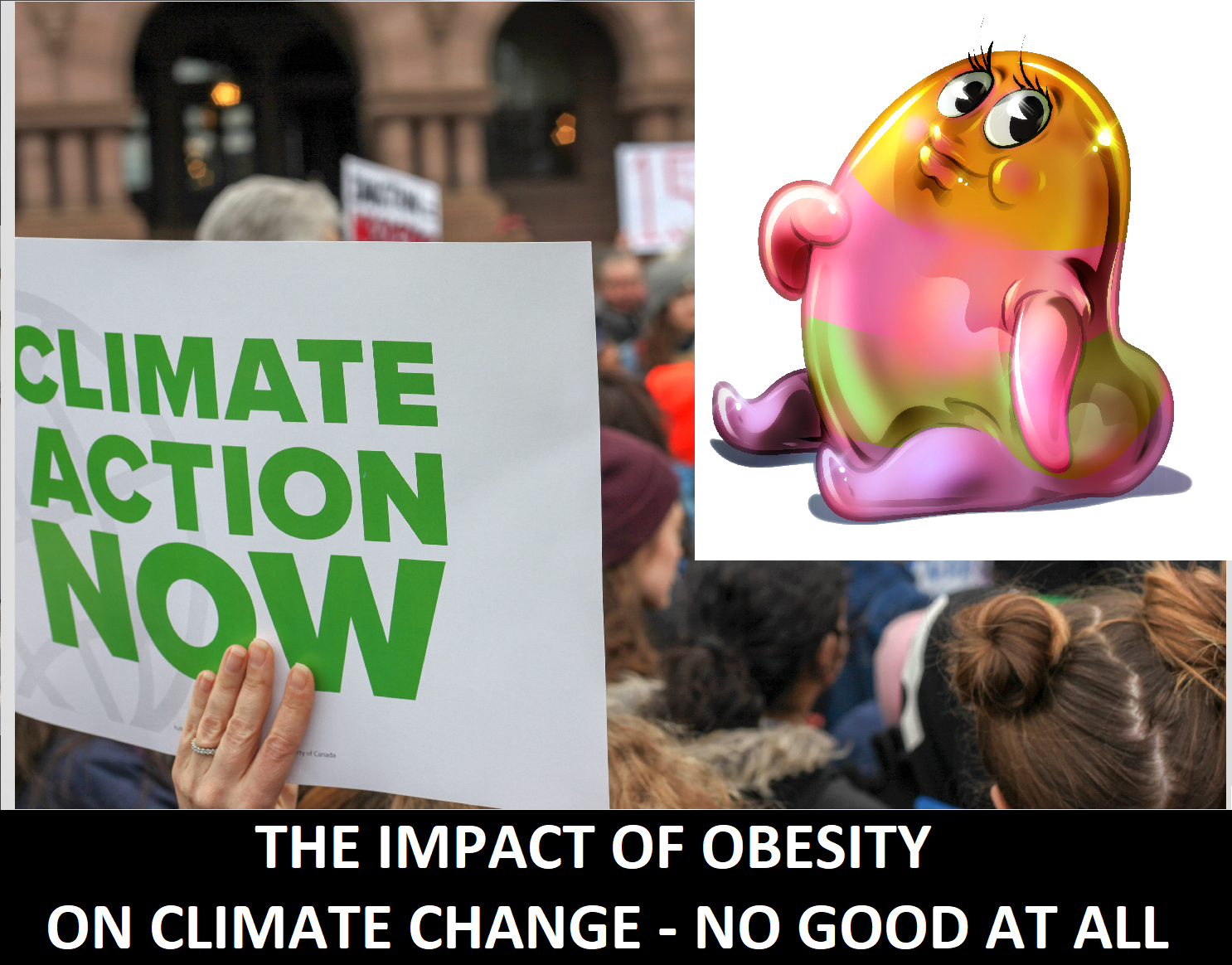According to the World Health Organization, Worldwide obesity has nearly tripled since 1975. There are now approximately 2.1 billion people who are overweight or obese on the planet. The study was conducted by an international consortium of researchers led by the Institute for Health Metrics and Evaluation (IHME) at the University of Washington. Currently, 70 percent of the United States population are overweight or obese. With climate change being a major issue in the upcoming presidential debate in 2020, it’s time to take a closer look at this issue of how being overweight or obese directly impacts climate change.
On the surface, many have pushed for new fuel standards, a reduction in greenhouse gasses and renewable energy solutions such as wind, solar and hydroelectric. Millennials in particular are very concerned about global warming and the planet that they will live in after the next generation is gone. What kind of planet will their children inherit after the they are gone? However, the paradox or these concerns versus the realty or how millennials and Americans in general contributes to climate change is baffling. According to Cancer Research UK, more than 7 in 10 millennials (those born between 1981 and 1996) will be obese by the time they reach middle age, making them one of the heaviest generations in history.
Now let’s drill down on this data a bit. It is common knowledge that if you are heavier, it will require more fuel to transport you by car, motorcycle or plane. It is also a known fact, that it will require more materials to make clothing because you have a larger body to cover. Larger clothing will naturally take more manpower to create and will ultimately require more natural resources to create. In addition, maintaining larger bodies requires more food energy. This results in greater demands of the planets natural resources. In a global economy where food is transported from multiple countries, the greater the demand for more food, the greater the increase in transportation of these food and other resource. It is also a well-known medical fact that being overweight or obese increase your risk factor for numerous diseases. According to the CDC, 75% of all United States healthcare dollars are spent on preventable diseases, many of which are obesity related.
Watch the video above to get the full story, leave a comment and please subscribe to our channel to watch more amazing videos.




